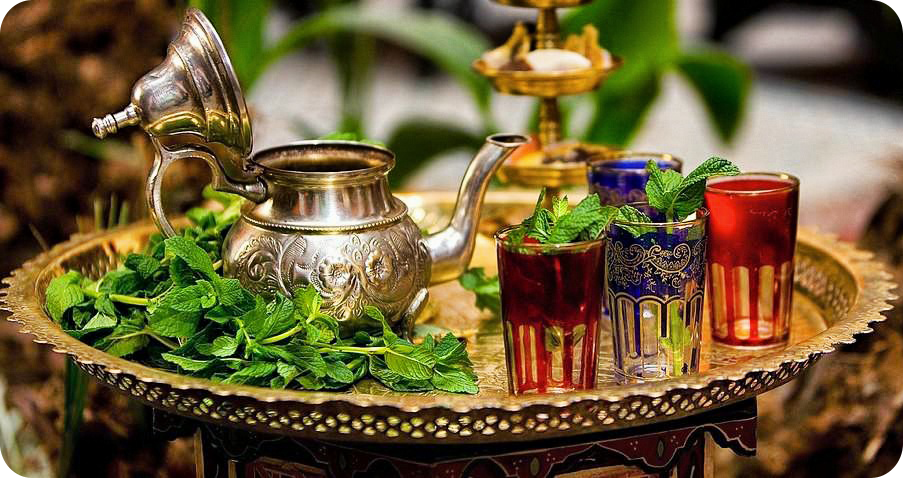Moroccan gastronomy is a symphony of flavors, a vibrant tapestry woven from centuries of tradition, cultural diversity, and culinary mastery. From the bustling streets of Marrakech to the serene oases of the Sahara, the cuisine of Morocco is a reflection of its rich history, geographical diversity, and the ingenuity of its people.

The Essence of Moroccan Cuisine:
At the heart of Moroccan cuisine lies a deep appreciation for fresh, seasonal ingredients and the art of slow cooking. Traditional Moroccan dishes are a harmonious blend of sweet and savory flavors, often infused with a tantalizing array of spices and herbs that awaken the senses and transport diners to a world of sensory delight.
Signature Ingredients and Spices:
Moroccan cuisine is renowned for its use of aromatic spices and herbs, which add depth, complexity, and fragrance to dishes. From the warm earthiness of cumin and the fiery kick of paprika to the delicate floral notes of saffron and the sweet warmth of cinnamon, Moroccan spices are the soul of the cuisine, elevating every dish to new heights of flavor.
Tagines: A Culinary Masterpiece:
No exploration of Moroccan gastronomy would be complete without mentioning the iconic tagine. Named after the earthenware pot in which it is cooked, the tagine is a slow-cooked stew that marries tender meat, poultry, or fish with an array of vegetables, fruits, and spices. The result is a melting pot of flavors and textures that tantalizes the taste buds and satisfies the soul.
Couscous: The Heart of Moroccan Hospitality:
Couscous holds a special place in Moroccan culture as a symbol of hospitality and togetherness. This delicate grain, made from semolina wheat, is steamed to perfection and served as a fluffy bed for savory stews, roasted vegetables, or tender meats. Whether enjoyed as a simple weeknight meal or as part of a festive celebration, couscous brings people together around the communal table, fostering a sense of unity and connection.
Sweet Delights: Moroccan Pastries and Desserts:
Moroccan cuisine is not just about savory dishes; it also boasts an array of decadent desserts and pastries that delight the senses and satisfy the sweet tooth. From the delicate layers of phyllo dough in baklava to the indulgent sweetness of honey-drenched pastries like chebakia and sfouf, Moroccan desserts are a celebration of flavor, texture, and craftsmanship.
The Culture of Tea:
No culinary journey through Morocco would be complete without experiencing the time-honored tradition of Moroccan mint tea. Served piping hot and infused with fresh mint leaves and sugar, Moroccan tea is more than just a beverage; it is a symbol of hospitality, friendship, and cultural heritage. Whether enjoyed in a bustling souk or a tranquil riad, Moroccan tea is an invitation to slow down, savor the moment, and connect with others.
In Conclusion:
Moroccan gastronomy is a celebration of life, love, and the simple pleasures of good food. From the vibrant colors of the souks to the intoxicating aromas of the kitchen, every aspect of Moroccan cuisine tells a story of tradition, heritage, and culinary craftsmanship. So, come along on a culinary adventure through the flavors of Morocco and let your taste buds be your g









